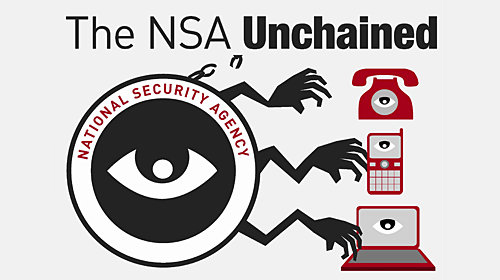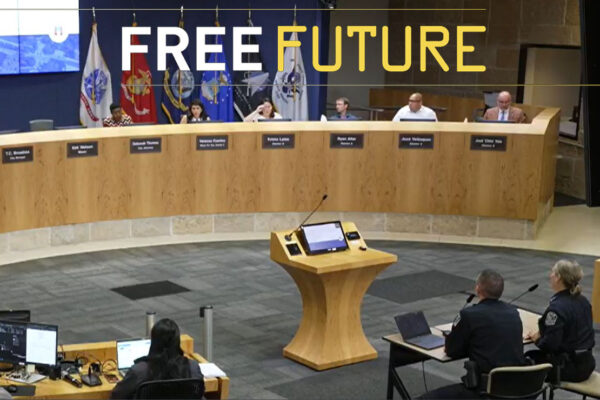
To hear some in the press tell it, Congress could not be more indifferent to the recent revelations that the NSA is collecting all of the phone records of all law-abiding Americans. This isn't entirely an unfair conclusion to draw, however rash. Congress, after all, passed the unconstitutional Patriot Act and FISA Amendments Act, while the Intelligence Committees whose job it is to ensure the intelligence community doesn't violate our rights, allowed the NSA to do just that.
But the press, and the American people, shouldn't write off Congress just yet: a civil-libertarian energy is stirring.
Since the Guardian broke the story about the NSA's bulk collection of innocent Americans' call records, many members of Congress have been pushing back at blanket government surveillance. They've made statement after statement criticizing the government's broad collection programs. Some have even argued there is no evidence these programs have thwarted attacks. But most tellingly, legislators are filing legislation left and right to compel more disclosure about these programs and rein them in. The bills are coming from both Democrats and Republicans, including members who voted for the Patriot Act in the past but feel misled about how it's been used.
In little less than 3 weeks, six bipartisan pieces of legislation to rollback NSA spying have been introduced:
- The LIBERT-E Act (H.R. 2399)—from Reps. Conyers (D-Mich.), Amash (R-Mich.), and 31 other bipartisan cosponsors—would limit Section 215 of the Patriot Act and force disclosure of the secret court orders and/or legal reasoning behind all of these surveillance programs.
- The Ending Secret Law Act (S. 1130 and H.R. 2475)—sponsored by Sens. Merkley (D-Ore.), Lee (R-Utah) and 10 others in the Senate and Reps Schiff (D-Calif.), Rokita (R-Idaho) and five others in the House—forces the administration to release the secret court orders that have interpreted this statute and our constitutional rights. If disclosure would harm national security, the attorney general would have to write and release an unclassified summary of the secret court orders or explain why they can't. This language got 37 "yes" votes on the Senate floor during the FISA debate this past December.
- S. 1182—from Sens. Udall (D-Colo.), Merkley, and five other bipartisan Senators—would tighten the requirements for getting a Patriot Section 215 order.
- The Restore Our Privacy Act (S. 1168) from Sen. Sanders (I-Vt.) would require the government to state with specific and articulable facts why each thing sought is relevant to an investigation.
- The Fourth Amendment Restoration Act (S. 1037), introduced by Sen. Paul (R-Ky.), would direct the government to interpret the Fourth Amendment as prohibiting searches of phone records without a warrant based on probable cause in both intelligence and criminal investigations.
- And yesterday Senate Judiciary Chairman Leahy (D-Vt.) introduced the FISA Accountability and Privacy Protection Act based on his past Patriot Act reform bills to rein in the Patriot Act and increase transparency.
Does this sound like a Congress completely unconcerned about the NSA spying revelations? Congress has a lot to make up for, but at least they're getting started.
Learn more about government surveillance and other civil liberties issues: Sign up for breaking news alerts, follow us on Twitter, and like us on Facebook.
Stay informed
Sign up to be the first to hear about how to take action.
By completing this form, I agree to receive occasional emails per the terms of the ACLU's privacy statement.
By completing this form, I agree to receive occasional emails per the terms of the ACLU's privacy statement.


